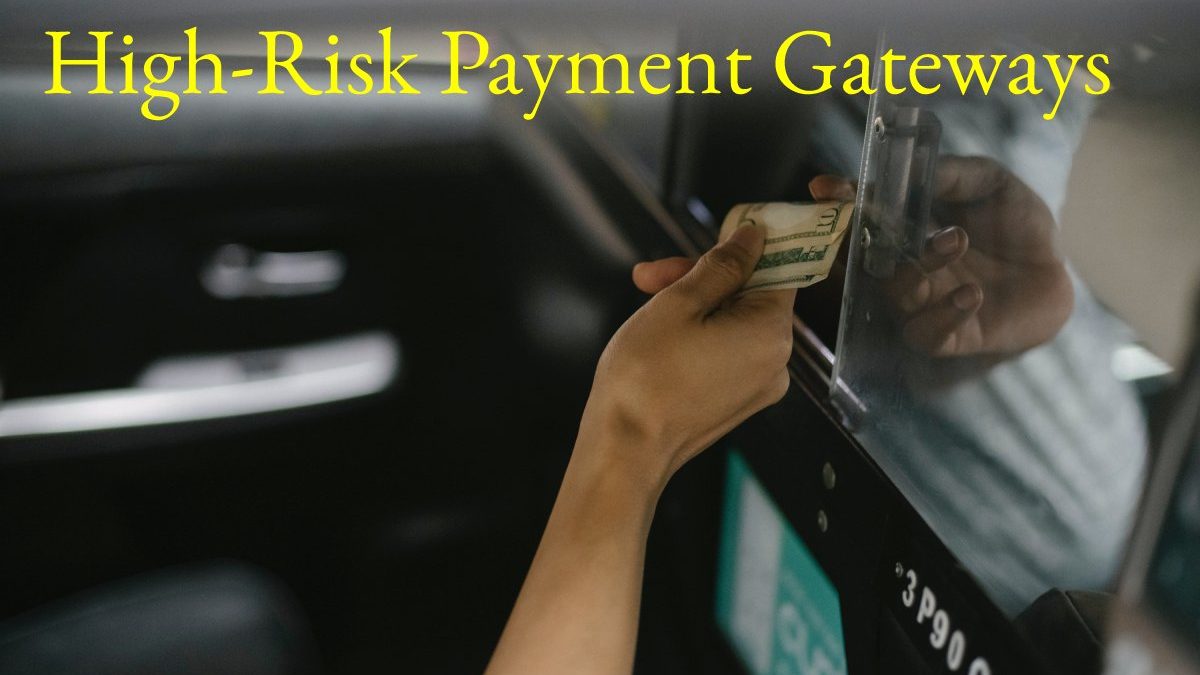Table of Contents
High-Risk Payment Gateways
High-Risk Payment Gateways, eMerchant Authority, is a highly secure platform for businesses that process millions of transactions per year (also known as PCI DSS Level 1). While there are many options for payment gateway providers, we can assure you that no one of them will offer you all the tools that eMerchant Authority can provide.
What is a Payment Gateway?
A payment gateway is an interface between your online store and the payment processor that, as the name suggests, processes the buyer’s credit card. The payment gateway processes the data of the credit or debit card. It authorises or not the payment, making sure that the encrypted data of the card is correct, that there are funds in it, and that the process carries out correctly. Safe. However, payment gateways cannot determine if a card has been stolen or cloned and therefore are not responsible for refund requests.
How does a High-Risk Payment Gateway Work?
There are four key players in every online deal: the buyer and the merchant, the issuing bank (which has issued the customer’s card), and the acquiring bank (which collects the funds from the issuing bank).
Although there are many steps, digital transactions usually take minutes.
Once the customer is ready to counter, the website will straight them to a payment gateway to enter credit card info or bank details.
The next step is encoding. After that, the payment gateway will encrypt the sensitive data between the buyer and the seller.
In addition, the gateway will perform fraud checks with built-in security protocols, such as TLS (Transport Layer Security).
After ensuring a secure connection, the issuing bank will check if there is enough equilibrium in the account.
If the seller’s account declines the transaction, the seller will ask the customer to choose another payment method. Some of the factors influencing approval are network errors, the seller’s maximum transaction limit, and bank-related issues.
Why use a High-Risk Payment Gateway?
We have asked ourselves why we use high-risk payment gateways? The reason is straightforward: numerous prestigious offshore virtual POS processors, such as PayPal, Skrill, Xoom, and Safe Card.
They do not want to take the risk of the business that many companies have online since they think the rate of fraud is too high and they don’t earn enough money.
They prefer businesses that have no risk and have to process little money but many transactions; the policies of these companies always benefit the buyer and never the seller. To put an end to this practice, we work with the best high-risk payment processors in the world.
The main advantage of these companies is that they accept all businesses and have very advanced seller protection policies. The businesses that our payment processors accept payments are as follows: Adult content Casinos (with license) Grow shop Tarot readers Software and hardware vendors Poker rooms (with permit) Travel agency vendors or tour operators Tobacco sales (with permit) Sports betting (with license) Auctions Pharmacy (with permit) Forex contact business If your online business is among the sections that we have mentioned above, you could process Visa, MasterCard, and Amex cards with our payment gateway if you have another type of online business you can contact us and we can advise if it is possible to process it.

Types of High-Risk Payment Gateways
Since having a good payment gateway is essential, knowing the pros and cons of each type will help you choose.
Redirection
The most direct payment experience, redirection, is best for new and small businesses as they are secure and easy to set up. Sellers dIn addition, sellers need to create a seller.
This payment gateway will take your customer to a separate payment page to complete the transaction. Then, you can promote your brand at the checkout screen by displaying your logo.
With third-party redirect gateways, you can count on them to do the heavy lifting, from security protocols to privacy obligations. However, this can also be difficult, as you will have less control over the process.
Another drawback is that this method can interrupt the user’s shopping experience. The buyer will have to leave the eCommerce site to complete the online payment.
Buy on-site, pay off-site.
The purchase order process is complete on the site without any redirection, which speeds up the user experience.
However, this gateway will take customers off the site to complete a transaction. It means that sellers must ensure security on their own.
Your website must be PCI compliant to protect customer information, which requires more resources and technical expertise.
Order and Payment on the Site
This payment is ideal for large e-commerce companies hoping to generate a high sales volume. Everything will work through the seller’s system, from purchase to payment processing.
A third-party gateway will temporarily redirect your customer away from the site for the transaction. However, they won’t notice it as the hosted checkout page looks just like your eCommerce website.
You can offer special offers or take advantage of add-ons to encourage people to buy more items in this process.
Once the transaction is complete, the system will automatically direct users back to your website. In this way, customers can continue browsing the product pages, which gives you more possibilities to increase conversions.
Examples of the Best Payment Gateways Existing for ECommerce Businesses
Considering the importance of a payment gateway for online stores, you must choose the right payment gateway provider. We’ve collected a list of the best payment gateway providers based on ease of use, security, cost, and compatibility.
1. PayPal
Indeed, you recognise PayPal as one of the most popular payment gateways supporting transfers and transactions. It offers two payment methods: PayPal Standard Checkout and PayPal Checkout. PayPal Standard Checkout allows merchants to accept credit cards online, while PayPal Checkout redirects clients to record into their PayPal account to complete their dealings.
2. Stripe
Stripe is another good payment gateway on the list; It is a payment platform that has been trusted by high-end firms like Pinterest, Lyft, and Slack. The result is ideal for debit and credit card processing, especially physical transactions. However, this payment processor also supports other payment options for all uses, allowing your business to be more flexible.
3. Square
As one of the most prevalent payment gateways on the market, Square has maintained its reputation as a trusted platform for over a decade. With Square, merchants can accept credit card payments via mobile, either through chips or near-field communication ( NFC ) protocols.
4. Apple Pay
When it comes to mobile payments, Apple Pay takes the lead. Thanks to its mobile payment structure, Apple Pay allows buyers to buy using Face ID and Trace ID. As long as your store offers an NFC terminal, you can accept credit cards and other electronic payments with this service.
5. Amazon Pay
With Amazon Pay, you can get many benefits from the world’s largest eCommerce marketplace.
All online payment processes happen on your site page. First, customers need to log into their Amazon account, and they’re good to go.
6. Authorize .NET
Authorise .NET is a cloud-based payment stage that enables merchants to accept credit card payments, electronic checks, and deposits in person and online.
This payment provider handles card-present and card-not-present transactions. In addition, it offers various third-party POS systems integrations, making it ideal for retail businesses.
Conclusion
Having a High-Risk Payment Gateway that guarantees the security of transactions and offers different payment methods (credit card, online banking, deferred or instalment payment, etc.) gives consumers confidence, improving their shopping experience and loyalty.
Also Read: 7 Tips for Small Business Owners on Time Management


